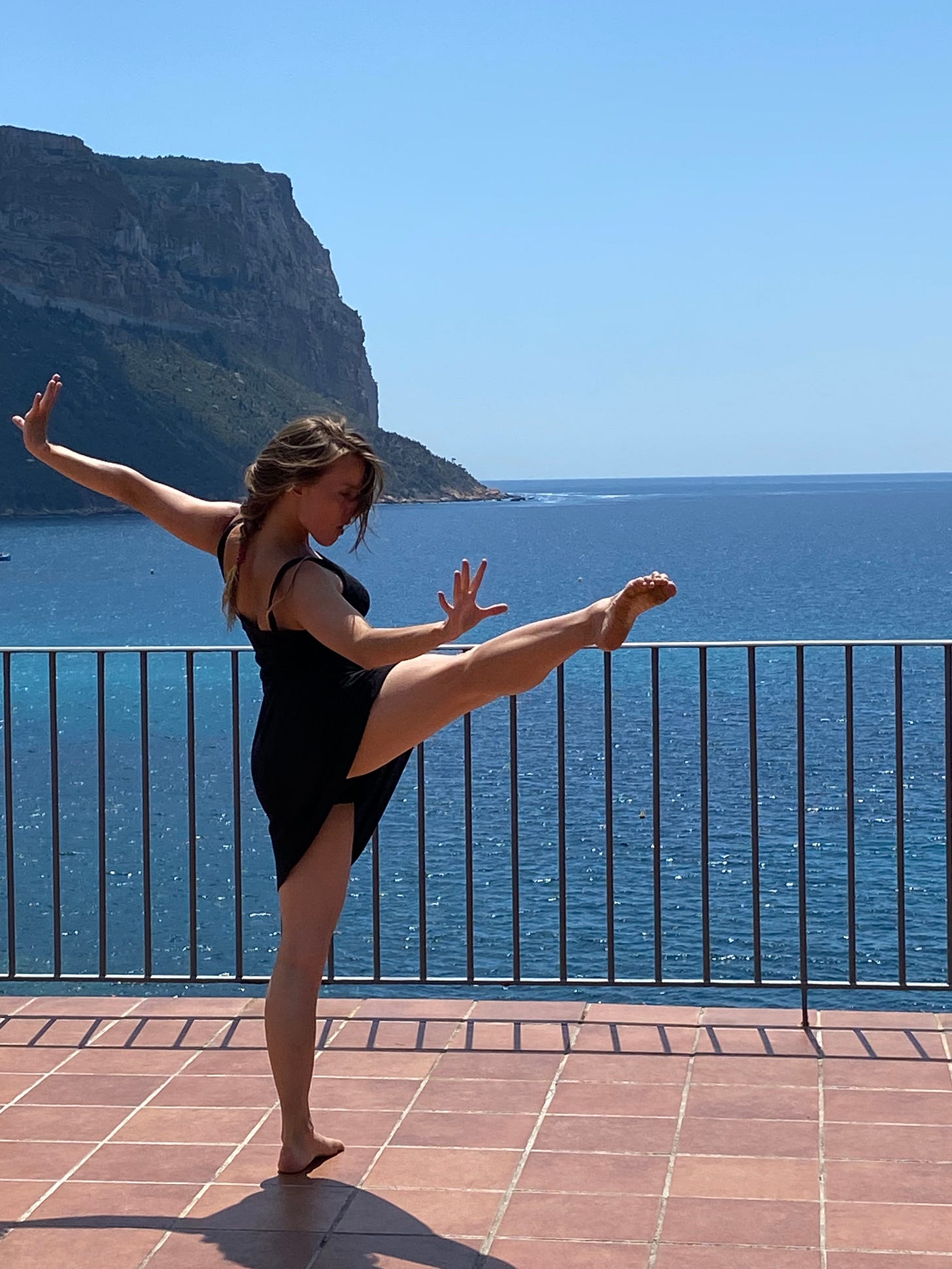On writing future memory into the body
Perspectives on the living wisdom of the body to usher us through change
A thousand holy, flaming tongues of prayer
Seven swallows dance evening sky
mirroring body, mirroring Earth, mirroring sea
The amphora of the Moon sailing salty night water
Venus riding on the back of dawn
Our embodied libraries of Earth-toned mythologies, gestures, and ritual
What does this landscape know about me that I have not yet met of myself? What am I offering in return for the privilege of being a visitor?
It is this last question that I am still asking as I mark nearly two weeks back in NYC.
Great initiations of grief have always come of separation from the beings that animate a landscape: coyotes of the Catskills, buttercups of the Berkshires, ocean battering the siltstone of the Pacific Northwest, a pause on the face of a new friend as they decide to share something with you, previously a stranger, and now: those who map the northwestern coast of the Mediterranean. Rock rose and stone pine, swallows, magpies, the church bells, silent lightning, fleet-footed summer rains and the cat that screeches only after sundown
I’ve learned that landscapes are just as people: you cannot possess them, cannot uproot them, cannot demand that they be what they are not, cannot assume that you understand them in their totality, cannot ask them to stay inert in the face of motion and change
And so, as in Borges’ “Book of Imaginary Beings”, I am left with the distance of my own body, a dream fugue of these human and non-human beings – I don’t claim to dream of them exactly as they are, but as I remember them: a cross-pollination of who they are and what has become of me because of them, a third species created through the ecotone of memory
How lucky to be left with this, a body newly stretched wide around the purest love: of work, connection, submission to simple mystery, of otherwise ways of knowing + relating that cannot be spoken
So, back to the original question which, at its core, is an urge toward a more deeply investigated reciprocal relationship: How do we mine our inner landscapes for the offerings that we are meant to bring forward? How can our concepts of exchange drive out our learned obsessions with transaction in order to shift to perspectives of wilder, more curious imagination?
In the past weeks, I have thought that perhaps our answers to this question lie in the making and unmaking of memory in the body.
As always, I’ll point us in the mirrored direction of our body + Earth to follow a trail of breadcrumbs:
When I first began interdisciplinary research at the outset of my career, I was led to a laboratory at the University of Cambridge, just a couple of hours north of London. At the helm of this lab is Professor Nicole Clayton, a quick-witted, small and quirky British woman who seriously probes the memory patterns of corvids as she does the Argentinian tango. I arrived there with a need to understand the somatic repercussions of mental time travel and the subjective experience of thinking. Which thoughts are our own? Who is part of our web of extended cognition? How does our body keep time, space, memory? What are the implications of planting our remembering into our soma? And can these stitches be changed?
What I love about science is that it gives a possible shape (or series of them) to the delirium of the human experience. I’m often elated to remember how crazy this all is: the two legs with which we walk, minds that wander, people that stay and leave, the opportunity to see the vast beauty of the world sometimes close and sometimes far from your place(s) of origin, to name but a few of the spectacular everyday happenings that are possible through the participation in being alive. When I left England I was befuddled by the very concrete physiology of memory and its friction with the lived, somatic experience of it: How do I deal with the temporality of memory in the body? The wrought distance that it creates? The impossibility of ever being back in the place that I remember? To remember is to map a distance, to feel the grief of never being able to feel that feeling you felt, and are trying to remember, ever again. It is a running toward, and into, evaporation. It is something very present for me as I return from this re-orienting trip.
Events in which our emotions are present (are there any events in which they are not?) are recorded through the following lineage:
Keep reading with a 7-day free trial
Subscribe to Works in Process to keep reading this post and get 7 days of free access to the full post archives.

